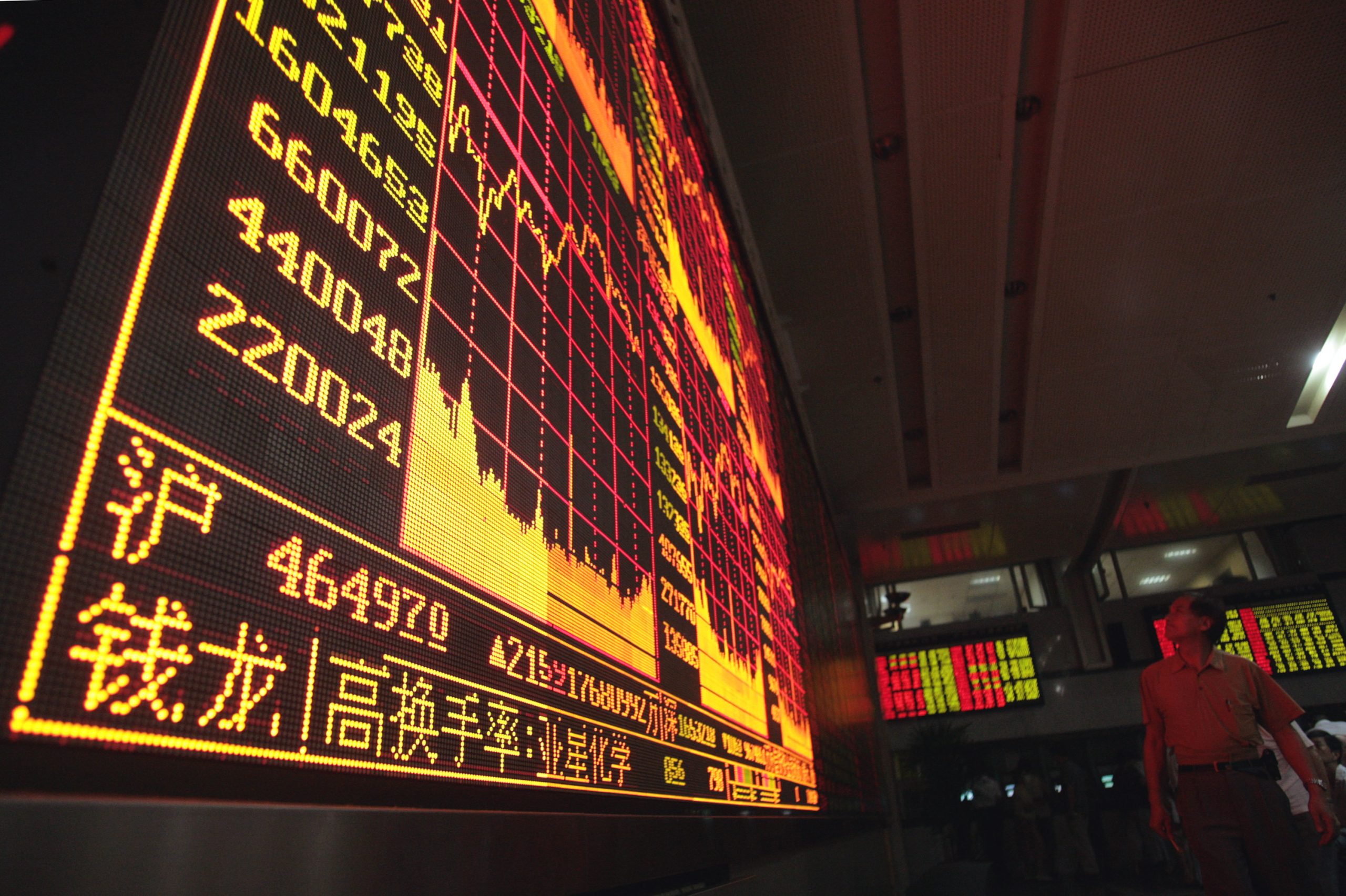Economy
Asia Tech Bulls Getting Picky After $1.4 Trillion Losses

More than $1.4 trillion of equity value has been zapped in the worst year for Asia tech stocks in a decade. For bulls, it’s a test of nerves.
While the rout has left many dazed, they see prospects for earnings growth unchanged, with demand for parts and processors burgeoning among auto and consumer-device makers. Choose wisely and be selective, they say — volatility is unlikely to dissipate with the U.S. and China arguing over trade.
Gone are the days when everything worked. Caroline Maurer of BNP Paribas Asset Management says next year will be driven by corporate fundamentals, not macro-economic factors. David Raper of Comgest Far East has bought technology stocks with “good long term value.” The proportion of technology stocks in his portfolio has risen to 40 percent in November from 30 percent in August.
“This year, the easier decision would be to underweight tech,” Maurer said in a phone interview from Hong Kong. With earnings among things likely to call the tune in 2019, “at least it does give you some room to try to think about which ones potentially work better.”
A gauge of technology stocks on the MSCI Asia Pacific Index has dropped 20 percent in 2018. Among its three biggest stocks, Tencent Holdings Ltd. and Samsung Electronics Co. have each lost more than 20 percent, with the latter set for its worst year since 2000. Taiwan Semiconductor Manufacturing Co., with a 1.7 percent dip, is poised for its first annual decline since 2008.
Investors have been held hostage this year by mounting concern over demand for smartphones and semiconductors. Apple Inc. reported weaker-than-expected iPhone sales and chip-equipment makers downgraded their earnings forecasts. The sector has been whipsawed by escalating tensions between the U.S. and China, with the arrest of Huawei Technologies Co. Chief Financial Officer Meng Wanzhou in Canada rattling investors.
No More Fluff
“The fluffy valuations, a lot of them are gone,” said Maurer. “It’s really, back towards, the companies’ earnings fundamentals now.”
Trade uncertainty remains, Maurer concedes, but the “common risk” surrounding U.S.-China tensions appear to have been more or less priced in. Tencent, for example, trades 32 times estimated earnings, down from 53 times in November last year. Alibaba Group Holding Ltd. trades 27 times estimated earnings compared to 39 times in January. The stocks are the top two holdings in her fund, accounting for a combined 16 percent as of end October.
Raper of Comgest, who has been building his position in both Tencent and Samsung during recent declines, says smartphone demand scares are nothing new following their rapid growth. He’s more focused on accelerating demand for components from autonomous vehicles and “increasing strength” in Asian technology giants.
Revenue growth from electronic auto components, for example, at Japanese suppliers such as Murata Manufacturing Co. have outpaced the rate of shipment growth for automobiles globally, according to Kazunori Ito of Morningstar. He, like Raper, says increased digitization across industries and need for faster wireless networks will stoke fresh demand for the sector.
Read more: Samsung’s 5G Network Grab Gets Boost With Huawei, ZTE Under Fire
Interesting Businesses
Raper, who invests with a five-year view, says TSMC and Samsung have much stronger positions in their industries than they did five to 10 years ago. He notes the gap between Silicon Valley companies and those in Asia have “dramatically decreased.” In January, Samsung overtook Intel Corp. for the first time in decades as the world’s largest chipmaker by revenue. Among lesser known companies, he cites Hangzhou Hikvision Digital Technology Co., a surveillance camera maker, as a company Comgest has increased positions in.
“We’re finding plenty of interesting businesses at interesting prices,” Raper said in a phone interview from Hong Kong. “Smartphone demand slows down but there is growth in other areas.”
Peter Chan of CGS-CIMP Securities and Ito of Morningstar say the supply-demand balance for the mobile sector may improve. Chan sees smartphone inventory levels normalizing in the first half of next year with demand picking up in the second quarter, while Ito says component makers could seek growth even as unit shipments in smartphones plateau.
“Supply and demand will be in much better balance in the second quarter next year, and we should see growth again,” Chan said in a phone interview from Los Angeles.
Global shipment volume for smartphones is likely to have dropped 2 percent this year compared with 2017, marking the first such decline ever for the industry, according to data tracker Counterpoint Research. However, it’s “silver lining” that total revenue likely grew 10 percent, helped by rising average selling price of smartphones, the firm said.
“Even if we can’t expect growth on units of smartphones, we could expect the number of components used per smartphone will increase,” said Ito, who like Raper, sees fresh chip and parts demand from devices needing higher computing powers.
Trade War & Tech
To Sydney-based Nader Naeimi of AMP Capital Investors Ltd., however, the negatives still overshadow the positives for the technology sector as uncertainty mounts surrounding the U.S.-China trade conflict.
“Tech stocks will continue to be under pressure,” he said in a phone interview. “Semiconductors — it really depends on which way trade tensions between the U.S. and China goes.”
Read more: No Respite Seen for Korean Chip Giants as Analysts Slash Targets
Ito, who doesn’t see any significant demand increase in the number of displays used per smartphone, says displays will face headwinds as phonemakers try to balance costs by capping prices for screens and spend more on other components.
Raper wants to bring people’s attention to the underlying reason behind the trade war: More and more Chinese companies are becoming competitive.
“Short term volatility is a fact of life in this market, that’s something that’s going to be difficult,” he said. “We can find opportunities despite the trade war.”
-

 Banking & Finance1 month ago
Banking & Finance1 month agoOman Oil Marketing Company Concludes Its Annual Health, Safety, Environment, and Quality Week, Reaffirming People and Safety as a Top Priority
-

 News2 months ago
News2 months agoOIG Appoints New CEO to Lead Its Next Chapter of Excellence
-

 News2 months ago
News2 months agoReport: How India & The Middle East Are Exploiting Immense Economic Synergies
-

 Uncategorized2 months ago
Uncategorized2 months agoOman’s ISWK Cambridge Learners Achieve ‘Top in the World’ and National Honours in June 2025 Cambridge Series
-

 Economy1 month ago
Economy1 month agoPrime Minister of India Narendra Modi to Visit the Sultanate of Oman on 17-18 December
-

 News1 month ago
News1 month agoJamal Ahmed Al Harthy Honoured as ‘Pioneer in Youth Empowerment through Education and Sport’ at CSR Summit & Awards 2025
-

 Economy2 months ago
Economy2 months agoOman’s Net Wealth Reaches $300 Billion in 2024, Poised for Steady Growth
-

 News2 months ago
News2 months agoIHE Launches Eicher Pro League of Trucks & Buses in Oman



























You must be logged in to post a comment Login